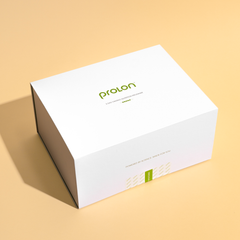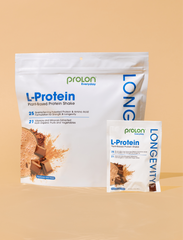
Calorie Deficit Diet vs Fasting Mimicking Diet: Which is Better for Weight Loss?
When it comes to weight loss, there are countless diet options available, but two popular methods include the Calorie Deficit Diet and the Fasting Mimicking Diet (FMD). Both focus on reducing calorie intake, but they do so in very different ways. In this article, we’ll explore how each diet works, their benefits, and which one may be the better choice for your weight loss journey.
What is a Calorie Deficit Diet?
A calorie deficit diet is one of the most commonly used methods for weight loss. The concept is simple: you consume fewer calories than your body needs to maintain its current weight, forcing the body to use stored fat for energy.
How a Calorie Deficit Diet Works for Weight Loss
When you create a calorie deficit by eating less than your body needs, it taps into its fat stores to make up for the energy shortfall. This gradual process leads to weight loss over time. The flexibility of a calorie deficit diet is one of its key strengths—people can adjust their calorie intake depending on their activity level and metabolic rate. It’s easy to implement and can be customized for different lifestyles.
Challenges of a Calorie Deficit Diet

While it sounds simple, maintaining a calorie deficit diet for a long time can be tricky. Over time, you might hit plateaus where weight loss stalls because your body adjusts to the lower calorie intake. Additionally, a prolonged calorie deficit can lead to hunger, fatigue, and even metabolic slowdown. As your body gets used to fewer calories, it may slow its metabolism to conserve energy, making weight loss even harder. There’s also the risk of nutrient deficiencies if you focus too much on reducing calories without paying attention to the quality of food you eat.
What is Fasting Mimicking Diet (FMD)

For those who struggle with maintaining a calorie deficit diet, the Fasting Mimicking Diet (FMD) offers a different, more structured approach to weight loss. Developed by researchers at the Longevity Institute at University of Southern California, FMD is a short term, low calorie diet designed to mimic the effects of fasting while still allowing you to eat.
The goal of FMD is to put your body into a fasting state, which can promote fat burning and cellular repair without the discomfort of complete food deprivation. It’s a five-day program where you consume specially formulated meals that are low in calories but provide essential nutrients. This allows your body to experience the benefits of fasting while still receiving the nourishment it needs.
How FMD Supports Weight Loss
During the five days of FMD, your body enters a fat burning state similar to fasting. It uses up stored glycogen (sugar) and starts burning fat for fuel. FMD is particularly effective in targeting visceral fat, which is the deeper fat stored around organs, and is often harder to lose with traditional diets. Unlike many other weight loss methods, it is also designed to protect muscle mass. Additionally, FMD aims to trigger autophagy, a process where the body clears out damaged cells and regenerates healthier ones. This may support metabolic health while promoting fat loss.
Comparing FMD and Calorie Deficit Diet for Weight Loss
When comparing FMD to a traditional calorie deficit diet, there are key differences in how each diet works and the results they deliver.
-
Speed of Results: The 5-day FMD targets fat-focused weight loss, and since it’s a more intense, short term program, it may provide faster results compared to the slower, more gradual weight loss seen with a calorie deficit diet.
The Calorie Deficit Diet, while effective over time, generally results in more gradual fat loss.
-
Long Term Sustainability: FMD is designed for periodic use, meaning you only need to follow the five day program every few months to see results - this makes it easier to maintain without the daily struggle of counting calories. (For optimal and sustained results, it is recommended to complete three 5-day FMD cycles per year, after an initial onboarding of three consecutive monthly cycles)
Calorie Deficit Diet, on the other hand, is a longer-term commitment. While it can be sustainable as a lifestyle, many people experience burnout or hit plateaus, making it harder to stick with over the long term.
- Metabolic Health and Fat Loss: Fasting Mimicking Diet focuses on burning visceral fat, which is known to have a more significant impact on metabolic health and overall wellbeing. The FMD’s ability to trigger autophagy may also provide added health benefits that go beyond simple fat loss. While the Calorie Deficit Diet is effective for overall fat loss, it doesn’t specifically target visceral fat and also lacks the cellular rejuvenation benefits seen with FMD.
Benefits and Drawbacks of Each Diet
Both FMD and the Calorie Deficit Diet have their advantages and disadvantages, depending on your goals.
Benefits of FMD
- Faster fat loss within a structured five day cycle.
- May activate autophagy, which can support healthy metabolic markers and cellular repair.
Benefits of a Calorie Deficit Diet
- Flexibility: You can easily adapt this diet to your lifestyle and maintain it for long term weight management.
- Consistent, steady weight loss when properly managed.
Drawbacks of Each Diet
- FMD: Requires a structured, five day commitment
- Calorie Deficit Diet: Risks metabolic slowdown and plateaus if maintained for too long or if calorie restriction is too severe.
Which Diet is Right for Your Weight Loss Goals?
Choosing between FMD and a calorie deficit diet depends on your specific weight loss goals and preferences.
- For Quick Fat Loss: If you’re looking to lose fat quickly over a short period, Fasting Mimicking Diet (FMD) may be an excellent choice, with the added benefits of cellular repair and supporting metabolic health.
- For Gradual Weight Management: If you prefer a more flexible, long-term approach to weight loss, a calorie deficit diet might be a better fit. It allows you to adjust your intake based on your daily needs and can be sustained over time with careful planning.
Why Prolon’s 5 Day Fasting Mimicking Diet May Be an Ideal Solution

Prolon’s Fasting Mimicking Diet (FMD) offers a scientifically backed, convenient way to achieve the benefits of fasting without having to completely give up food.
- Clinically Proven Results: Studies show that Prolon’s FMD helps reduce visceral fat and support healthy metabolic markers and cellular rejuvenation. This makes it an ideal option for those seeking both weight loss and long-term health benefits.
- Convenient and Structured: With Prolon’s 5 Day FMD, you get prepackaged meals that make it easier to follow than traditional calorie counting. There’s no need to track your intake or worry about meeting your nutritional needs—the program does it for you.
Achieving Your Weight Loss Goals
Both FMD and the Calorie Deficit Diet can help you achieve your weight loss goals, but each offers different advantages. If you’re looking for quick, effective fat loss with additional potential health benefits, Prolon’s FMD may be the ideal solution. For those who prefer gradual, steady weight loss, a calorie deficit diet could be the right choice.
References:
1. Hopkins et al. (2017). Metabolic adaptations during negative energy balance and their potential impact on appetite and food intake. *Proceedings of the Nutrition Society*. https://www.cambridge.org/core/journals/proceedings-of-the-nutrition-society/article/metabolic-adaptations-during-negative-energy-balance-and-their-potential-impact-on-appetite-and-food-intake/92FC7CC3D00F801FBC1B8F4A164ADECD 2. Di Francesco et al. (2018). Fasting mimicking diet and markers/risk factors for aging, diabetes, cancer, and cardiovascular disease. *National Center for Biotechnology Information (NCBI)*. https://pmc.ncbi.nlm.nih.gov/articles/PMC6163457/ 3. ScienceDaily (2017). Fasting-like diet reduces signs of aging and diseases in mice and humans. *ScienceDaily*. https://www.sciencedaily.com/releases/2017/02/170223124259.htm 4. Longo et al. (2024). Fasting Mimicking Diet Reduces Biological Age by 2.5 Years. *USC Leonard Davis School of Gerontology*. https://gero.usc.edu/2024/02/20/fasting-mimicking-diet-biological-age/ 5. Li et al. (2024). Autophagy and fasting: Mechanisms for longevity and healthspan. *Nature Communications*. https://www.nature.com/articles/s41467-024-45260-9











